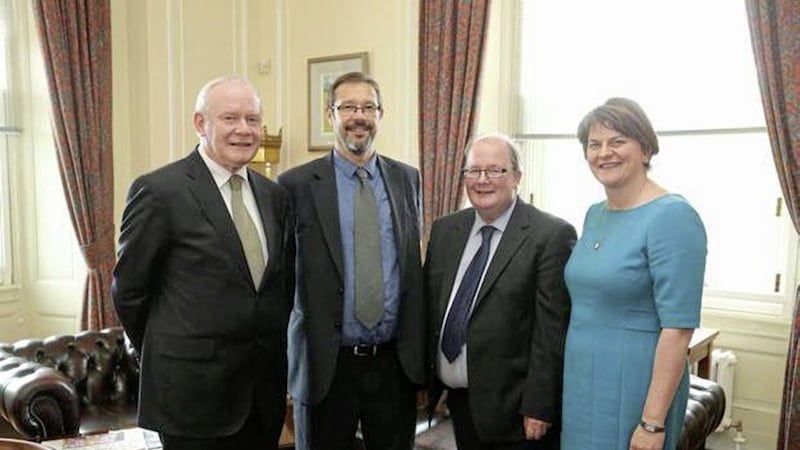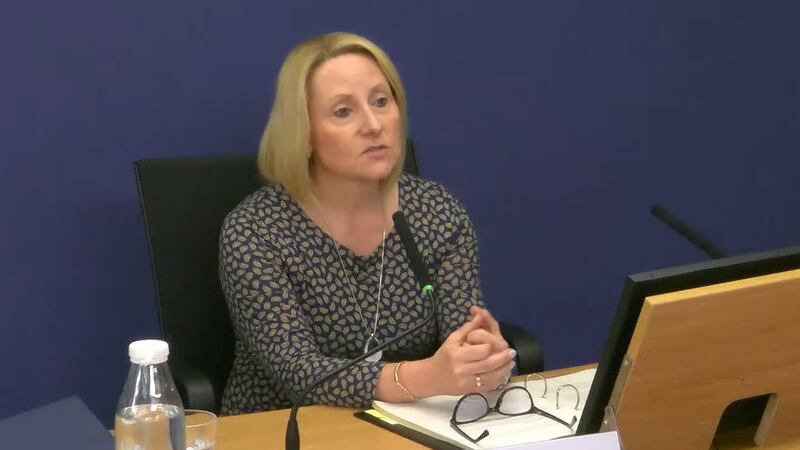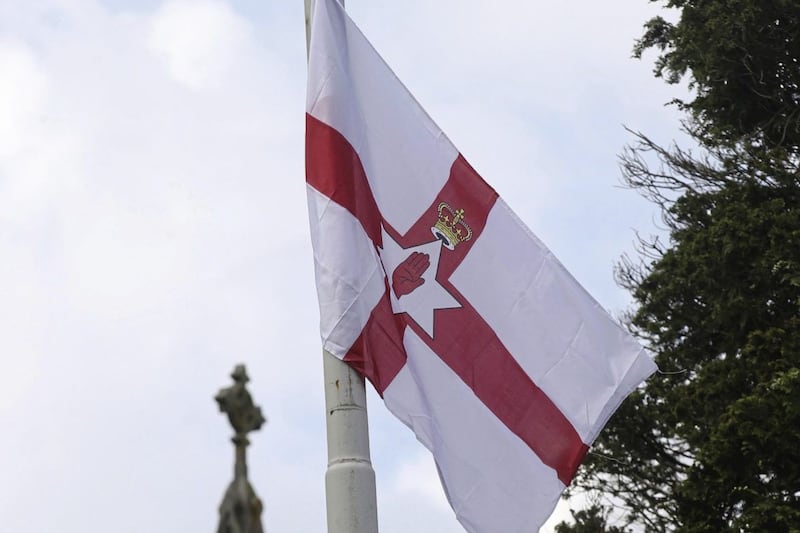SINN Féin has swept aside concerns over links between the DUP and the 'independent' co-chair of Stormont's flags, parades and identity group.
The Irish News revealed on Saturday that Fermanagh man Neville Armstrong was the DUP's representative on a Social Investment Fund (SIF) steering group before being appointed in June as the joint 'independent' chairman of the new Commission on Flags, Identity, Culture and Tradition.
Prior to the revelation, the SDLP had voiced misgivings about the commission's make-up – five of its members have clear links to unionism, including two of the non-political appointees. Just three nationalists sit on the panel, and only one woman.
When asked to comment on Mr Neville's appointment, Sinn Féin said only that he was recruited "through public appointment process" by the Executive Office.
But according to commentator Chris Donnelly, unionists have an "upper hand" on the group, which was established under the terms of last year's Fresh Start agreement.
The former Sinn Féin local government candidate said its overwhelming unionist majority had "damaged the credibility of the commission prior to it even presenting recommendations".
"The report and recommendations will be agreed by a majority of the overall commission, including at least five of the seven members appointed by party leaders," he wrote on Slugger O'Toole.
"The background and stated positions of many political and purportedly non-political commission members indicates that the opinion of the majority is likely to solidly reflect a unionist outlook."
Mr Donnelly said Mr Armstrong's appointment showed unionism was better organised when it came to ensuring its interests were represented on the 15-person panel.
"It is hard to conclude anything other than that the composition of the commission is another example of DUP-led unionism outmanoeuvring Sinn Féin-led nationalism in precisely the type of manner that has led to nationalist disillusionment," he said.
"The fact that no voices from the GAA, nor Irish language movement, were appointed from amongst the non-political appointments is noteworthy in itself, in contrast to the appointments of senior figures from within both the loyal orders and Ulster-Scots Agency."
But Mr Armstrong's fellow co-chairman has insisted that the commission's credibility has not been damaged by the revelation about his counterpart's DUP connections.
Academic Dominic Bryan, who has conducted extensive research into flags and identity, said the body's aim was to establish a consensus.
"We have to try and work to get consensus and you'll see that whatever the numbers on the commission there is a diverse group of people," he said.
"There is a voting system that we can use if we have to but the commission is absolutely committed to getting a consensus and if we can't get the consensus on which we and the governments can agree then it's not worthwhile us doing the job."





